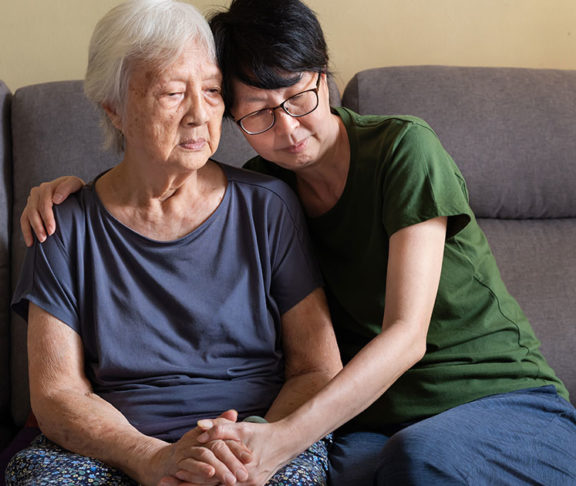Not all aphasia is created equal. With eight different types of aphasia and four subtypes of primary progressive aphasia, caregivers face many challenges in supporting an individual with these neurological disorders.
The brain is a complex organ that controls our sensory, motor, and cognitive functions. Sensory input is processed and responses are formulated via interconnections to different areas of the brain. When these connections are interrupted suddenly by a blood clot (embolism or aneurysm), bleeding (hemorrhage), or trauma (closed or penetrating injury), brain cells around the damaged area will cease to function, resulting in disorders specific to that area. Gradual changes within brain cells also can occur, resulting in different types of dementia.
Types of aphasia and dementia
Eight different types of aphasia are classified by location, severity of the brain damage, and the functions affected. Anomia resulting in word-finding problems is the mildest form of aphasia, whereas global aphasia causes severe difficulties with understanding and expressing speech.
Similarly, the dementias are defined by unique characteristics of cellular changes. Alzheimer’s dementia, the most common form, results from changes in amyloid and tau in the cells throughout the brain that affect memory and other cognitive functions. In contrast, abnormal accumulations of proteins in the cell bodies causes Lewy Body dementia and disruptions in social functioning.
There are four subtypes of primary progressive aphasia (PPA). This language disorder can begin with various combinations of comprehension and expressive difficulties, but changes in cognitive abilities appear gradually like different types of dementia. Logopenic and mixed PPA are most often associated with Alzheimer’s pathology, whereas agrammatic and semantic PPA are more localized to the frontal and temporal areas.
The challenges of caregiving
Caregivers of individuals with these neurological disorders are faced with many challenges that require educational and emotional support. When loved ones can no longer express their wants and needs clearly, caregivers need to learn how to support effective communication.
Speech-language pathologists (SLP) conduct evaluations and determine effective communication strategies that can be shared with caregivers. SLPs may provide information about the disorder and what to expect in the future. However, because the medical community cannot predict the course of any individual’s disease, living with a person with a neurological condition is challenging. Experiences and timelines often differ among those with the same diagnosis. Caregivers, therefore, are at tremendous risk for stress, depression, and the worsening of their own medical conditions. They often need to be encouraged to develop strong social support networks and to find ways to reduce stress in their lives.

